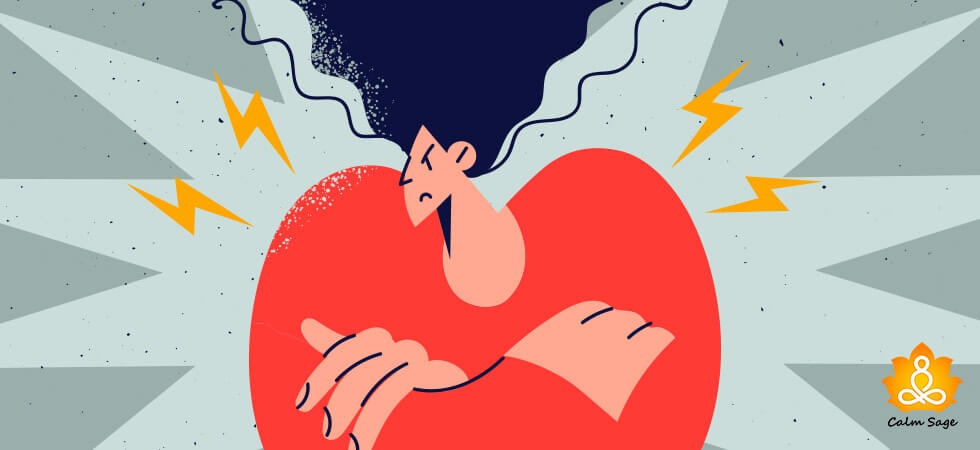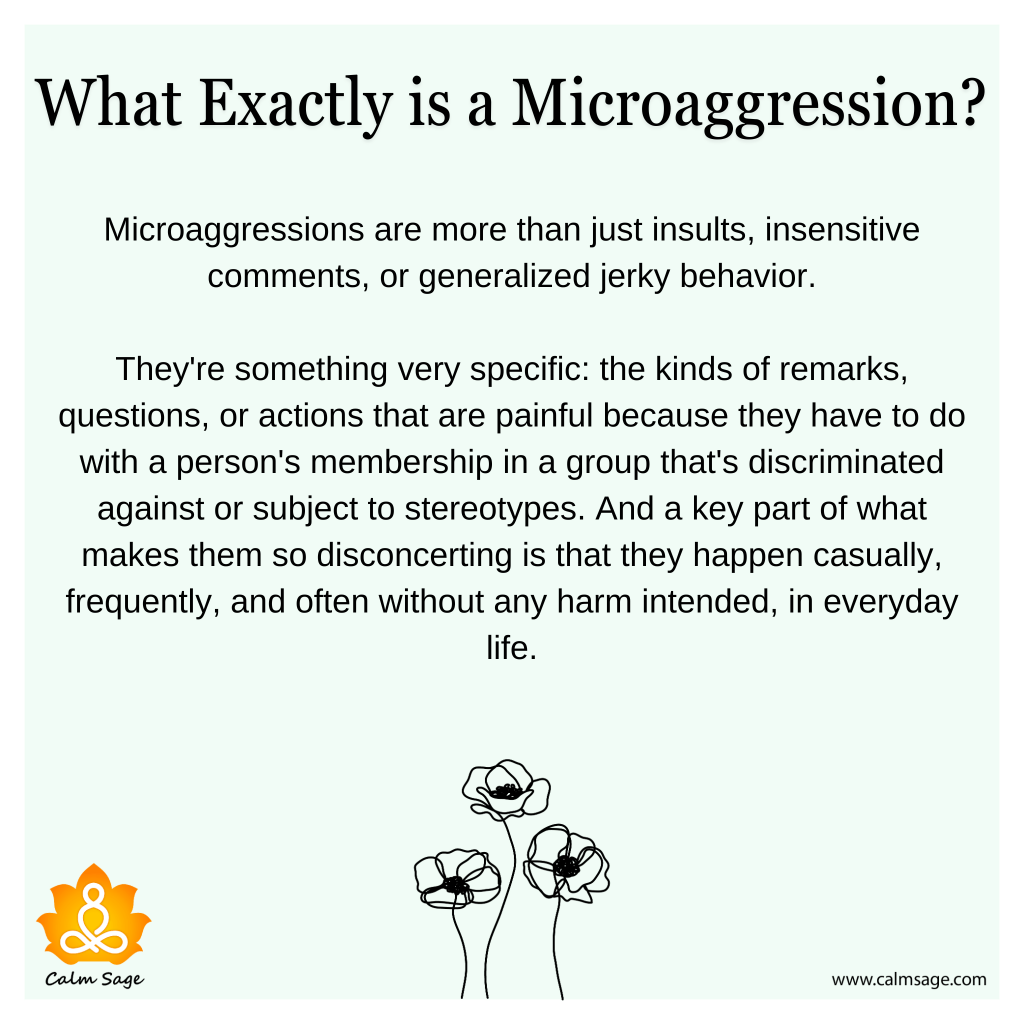How to Confront And Respond to Microaggressions

Social interactions are always difficult when you are met with aggression and discrimination, rather than acceptance. However, there is a subtle, almost invisible side of discrimination that can make moving through the landscape of social interactions even more difficult. These subtle yet impactful behaviors can leave us feeling invalidated, marginalized, or disrespected.
I’m talking about microaggressions. They might be small on the surface, but their impact can be far-reaching on our mental well-being and the quality of our lives.
Understanding how to respond to and deal with microaggressions can be quite a challenging trip. From striking a balance between being confident and being assertive, to ensuring that the relationship survives the aftermath, it can be a nerve-wracking experience.
With the right strategies, you can confront and respond to microaggressions effectively whenever they pop up at your workplace or in your relationships.
What Are Microaggressions?

Microaggressions are brief, often unintentional, verbal or nonverbal behaviors that can be hostile, derogatory, or negative to people. Usually, microaggressions are seen in the more minority groups and can be targeted at your identity such as race, gender, sexual orientation, religion, disability, or socioeconomic status.
Some examples of microaggressions can be;
- Hearing comments made about your profession based on your race
- Hearing comments based on assumptions about your gender
- Hearing comments or jokes about your sexual orientation or hearing “gay” being used as an insult
- Hearing comments based on your capabilities or limitations as a disabled person, for instance, speaking loudly to a deaf person
The Types of Microaggressions
There are predominantly three types of microaggressions;
- Microassaults: These are explicit and intentional discrimination – either through actions or words. For example, making an offensive joke about your sexual orientation.
- Microinsults: These are subtle snubs, invalid remarks, or demeaning messages. For example, your sports coach is surprised with your progress based on your gender.
- Microinvalidations: These are remarks denying or undermining someone’s experiences or reality. For example, a friend dismissed hate crime protests by saying, “All lives matter.”
How Microaggressions Impact Your Life?
Microaggressions might seem quite minor when you look at them individually, but their cumulative impact can be quite significant. Experiencing microaggressions in your life, in relationships, or at the workplace can impact your self-esteem, make you feel isolated, and give rise to constant inequalities.
Unaddressed microaggressions can even lead to increased stress, anxiety, and depression, along with physical health issues. These subtle yet insulting behaviors create an environment where you feel constantly invalidated and unsafe. With time, it can affect your ability to engage in social and professional settings without fearing for your mental and physical health.
In a recent study, researchers found that microaggressions occur in different social groups, but they mostly target marginalized groups. It was found that gaslighting, mansplaining/womb understanding, and victim-blaming were all reactions whenever a micro aggressor was called out for their derogatory words or behaviors.
Responding to Microaggressions
It’s not always safe to respond to microaggressions, but if you feel safe and think it’s OK to speak against such behavior, then here are some ways you can respond to microaggressions;
- Speak Up: Calmly but assertively speak up against the person or group about the impact of their words or actions. Do it only when you feel safe.
- Use “I” Statements: You can also use “I” statements to express how you feel rather than straight-up accusing them of their mindless thoughts, comments, and actions.
- Talk About Boundaries: It’s also important to communicate your boundaries and expectations to others about what respectful behavior should look like.
- Reframe The Conversation: You can also try to redirect or reframe the conversation to take it away from the act of microaggression.
- Seek Help: You can also reach out to friends and family or support groups for advice and guidance on how to safely confront and respond to microaggressions.
- Record the Incidents: This is very essential to do. Whenever you experience microaggressions, make a record of them for either your reference or to report it further if the microaggressions escalate.
Are Microaggressions Different From Rude or Insensitive Comments?
Microaggressions are subtle discriminatory words or actions that can undermine a marginalized group. But, what makes them different from rude or insensitive stuff others say or do? Well, here’s an example, so read carefully;
You’re at a family gathering and one of your aunts makes a comment saying, “You’re so smart for someone like you,” That hurts, right? This is a classic example of microaggression. It’s a subtle, maybe unintentional, comment that leaves you feeling confused, but mostly hurt.
Now, when I talk about rude or insensitive comments, they could be straight-up insults. Here’s another example;
You do something wrong once and your friend constantly tells you, “You’re so stupid,” or something equally mean.
If you compare this comment with microaggression, there’s no subtlety and this comment could never be made unintentionally, but it still leaves you feeling hurt.
Microaggressions can not always be obvious as a straight-up insult, but they still hurt. With time, unaddressed microaggressions can make you feel small, insignificant, and mostly misunderstood. So, rude or insensitive actions or words might hit you like a punch, and microaggressions are more like a bee sting; they might be small and inconsequential, but they definitely leave a mark on you.
Coping With Microaggressions
Dealing with microaggressions can be emotionally taxing, so to help you feel less emotionally and mentally burdened, here are some tips for you to cope with microaggressions;
- Practice Self-Care: You can take care of yourself by practicing self-care exercises such as mindfulness, physical exercise, or engaging in hobbies to manage stress and recover emotionally.
- Build Resilience: With coping strategies, you can bounce back from the impact of microaggressions. You can build resilience by reframing your negative thoughts and/or finding humor in situations where microaggressions occur.
- Advocate: Don’t hesitate to speak up and educate others about the impacts of microaggressions on one’s emotional, mental, and physical health. You can work on advocating for policies on inclusivity and diversity.
- Seek Allies: You can also find like-minded people who can offer support and amplify your voice. This can help you feel empowered to help others facing similar discrimination too.
- Seek Professional Help: You can also consider seeking therapy or counseling to process your experiences and develop healthy coping mechanisms to cope with stress and anxiety.
Wrapping Up…
Microaggressions might be common in your relationship or at the workplace, but they are not insurmountable. By understanding what they are, how they impact your life, and how to respond to microaggressions, you can reclaim your power and create environments of respect, empathy, and inclusivity.
You deserve to be treated with respect and dignity, regardless of who you are. So, speak up and advocate for yourself and others. Maybe your voice can contribute more to a compassionate society, after all.
I hope this blog helped you understand what microaggressions are, their impact, and how to deal with them. Let us know your thoughts in the comments below.
Take Care!




















